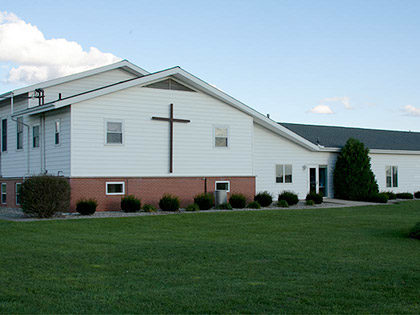True Worship
Worship Series #1 – Defining Worship
Introduction to Series:
What is worship? Most of the time when we think of worship we think of music. Music is a powerful form of worship and one of the most emotional and involving, but music is a form of worship – not worship itself. It’s quite possible to have worship without music and to have music without worship.
And so, contrary to that opening, this series will not be about music. Music is a part of worship and so it will come up, but worship is a bigger topic.
But what is worship?
Well, the English term comes from “worth-ship.” It means something has worth.
At the most basic level, worship is ascribing worth to someone or something. It is simply saying “you are worthy.” And that’s at the most basic level.
But when we look at it biblically, it’s quite a bit deeper than that. For starters, the Bible says that we are to worship God alone. We should worship no one else or no other thing. To worship someone or something else other than God is idolatry, and that is a sin.
And that right there tells us that what the Bible means by worship is something much deeper and more serious than merely ascribing worth to something. Worship is ascribing worth to something, but don’t worry, you haven’t sinned by saying that pizza is tasty or your wife is beautiful.
The Bible also tells us that there are both correct and incorrect forms of worship. Worship must meet certain criteria for it to be the kind that is acceptable to God. God is looking for something more than simply being ascribed worth.
So the English word for worship just means to ascribe worth to something, but what is biblical worship? What is the kind of worship that God is looking for?
That’s going to be the first topic in this series. We’re going to seek to define the kind of worship that God is looking for. Here is a definition I arrived at with the help of Warren Wierrsbe:
Theme:
“Worship is the believers’ adoring and spiritual response of all that they are – mind, emotions, will, and body – to who God is and what He says and does.” X2
Now let’s talk about where that definition comes from. First, let’s look at John 4:19-24.
Text: John 4:19-24
Context:
This is a familiar story to many. Jesus was on His way to Jerusalem and chose to cut through the territory of Samaria. A lot of Jewish people around that time would actually choose to go around Samaria rather than through it. The relationship between Jews and Samaritans was not good.
Jesus stops in a town and asks a woman there for water. This was unusual for a couple reasons – one: because Jesus was a man talking to a woman, and two because Jesus was a Jew talking to a Samaritan. It catches the woman off guard and she begins to question Jesus.
The exchange that follows is very helpful to us in understanding what worship should look like.
The woman gives a statement but her statement is really a question, since she prefaced it with “I see you are a prophet.”
She wants to know: where is the correct place to worship God? Us Samarians have been taught to worship at the temple on mount Gerizim, and you Jews have been taught to worship at the temple on mount Moriah. Which is correct?
Jesus’ answer: The issue of place will soon be irrelevant. For a time it was relevant. For a time there was that temple in Jerusalem set up, with the priests and the sacrifices and all that goes with it. And God expected people to worship him there – not there exclusively, mind you, but there was a special emphasis on the temple and certain expressions of worship were only possible at the temple.
But Jesus shifts the topic away from place. He says this controversy between the Jews and Samaritans over the place of worship isn’t going to matter much longer. Let me tell you what matters. Let me tell you the kind of worship that God is looking for.
First, the Samaritans had a more serious problem with their worship than its location. The Samaritans were worshipping in ignorance. The Samaritans had a kind of Bible themselves, but it was different from the one that the Jews had. They had different ideas. As an example, any references in the Bible to worshipping at the temple in Jerusalem were changed to worshipping at the one in Samaria. The Samaritans had warped and changed biblical history to be about them, but Jesus says that the Jews know God for salvation comes through their line – salvation comes through Jesus and Jesus was a Jew.
Jesus says, the place you are worshipping at won’t matter soon enough, but your ideas are wrong and that is a problem now and will continue to be one. The true worshippers of God must worship Him in spirit and in truth.
Sometimes people will hear talks on theology and definitions and that sort of stuff and grow weary of them. I agree, sometimes we preachers can overdo it, myself included. But this is why we overdo it – if your ideas about God – who He is and what He has done – are incorrect, then your worship will also be incorrect. This woman had some different ideas about God and His plans than she should have, and Jesus told her rather bluntly that she was worshipping God wrong because of it.
Biblical knowledge is very practical, because without it you run the risk of false worship.
But Jesus doesn’t just say that we must worship God in truth. He also says that we must worship God in spirit because God is spirit.
This emphasizes to us that worship is not so much a matter of the physical as it is of the spiritual. God is a spiritual being. He doesn’t grow hungry or need air or need sleep. Furthermore, God’s pleasures and concerns are typically going to be different from the concerns of the flesh. Our worship of God, therefore, is not a matter of feeding Him or giving Him a pat on the back. It is a matter of the spirit.
Turn to Psalm 50:12-15. It will help explain it a bit better.
Text: Psalm 50:12-15
In short, God does not get hungry. Everything in the world belongs to Him and was made by Him. Offerings of bulls and goats and things are not what God is looking for. He asked for those in the past, but He asked for them as a shadow of the one true sacrifice that was to come: Jesus Christ. Not because He needs such things. No, God is spirit and so He is not looking for things like we do. God is looking for spiritual things like these: thanksgiving, performing the vows that you make to God – actually following through on them, calling upon Him when you are in trouble, and glorifying Him when He delivers you.
God is spirit and those who worship Him must worship Him in spirit and in truth.
Our definition of biblical worship, once again is: “Worship is the believers’ adoring and spiritual response of all that they are – mind, emotions, will, and body – to who God is and what He says and does.” X2
“Spiritual response” and “to who God is and what He says and does” comes from worshipping God in spirit and in truth.
Application:
Here are some good starts to worship: give thanksgiving, perform your vows, pray to God about your troubles, and glorify God when He helps you.
Grow in your understanding of God to ensure that your worship is done in truth.
Link: Other parts of this definition come from Matthew 15:7-9
Text: Matthew 15:7-9
We’ve been in Luke a lot so you might be able to guess the context of these words at this point. The Pharisees and scribes have been heckling Jesus again and He was giving it right back to them. Jesus had a major problem with their insincere showmanship form of religion and was letting them know about it.
We see once again that our worship must be in truth.
And we also see that our worship must be sincere and from the heart. Just teaching and reciting facts and saying things about God is not true worship. If your heart is far from God, if it’s just a hypocritical act, then the worship is in vain. It is not the kind that is acceptable to God.
The things you say and do must come from a heart that loves God. This is why I say that the believer’s worship should be an adoring response. God is not looking for worship that is an emotionless duty. He is looking for worship from an adoring heart.
Link: One final verse contributing to this definition is Romans 12:1 – “I appeal to you therefore, brothers, by the mercies of God, to present your bodies as a living sacrifice, holy and acceptable to God, which is your spiritual worship.”
Text: Romans 12:1
Actually, from this verse we could probably add a couple more things to the definition of worship. But if we were to try to make an exhaustive definition of worship, we’d probably end up with one running a whole page.
Worship is a sacrifice and it must be holy. That’s not really in the definition I’ve provided, but it would be good for you to remember it anyway. If you haven’t given up something – your time, or attentions, or energies, or something. If you haven’t sacrificed in some way, then it’s pretty doubtful that you have worshipped. And if whatever you are doing in your worship is ungodly or unholy, then certainly you are not worshipping God.
But what I did draw from this verse is that worship involves the whole person: our mind, bodies, will, emotions. We present and use all of ourselves in our worship of God.
“Worship is the believers’ adoring and spiritual response of all that they are – mind, emotions, will, and body – to who God is and what He says and does.”
Application:
We probably all have room for growth in our worship.
Some people have “in truth” right, but their hearts are far from God. And some have passionate hearts, but are off in their understanding and become like the Samaritans – worshipping what they don’t know.
Some forget that God is spirit, and so their worship of God is as if He were made of flesh – offering stuff to God and trying to contain their worship of Him to buildings and places, while neglecting the things God is most interested in – like thanksgiving, love, mercy, and grace.
Some people worship God, but not with their whole lives. They keep something in reserve away from Him.
Try by the Holy Spirit to identify where you fall short. Ask for Him to help you grow in worship.

